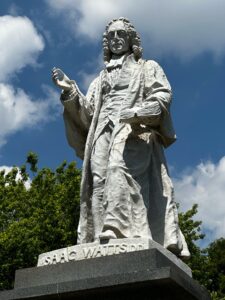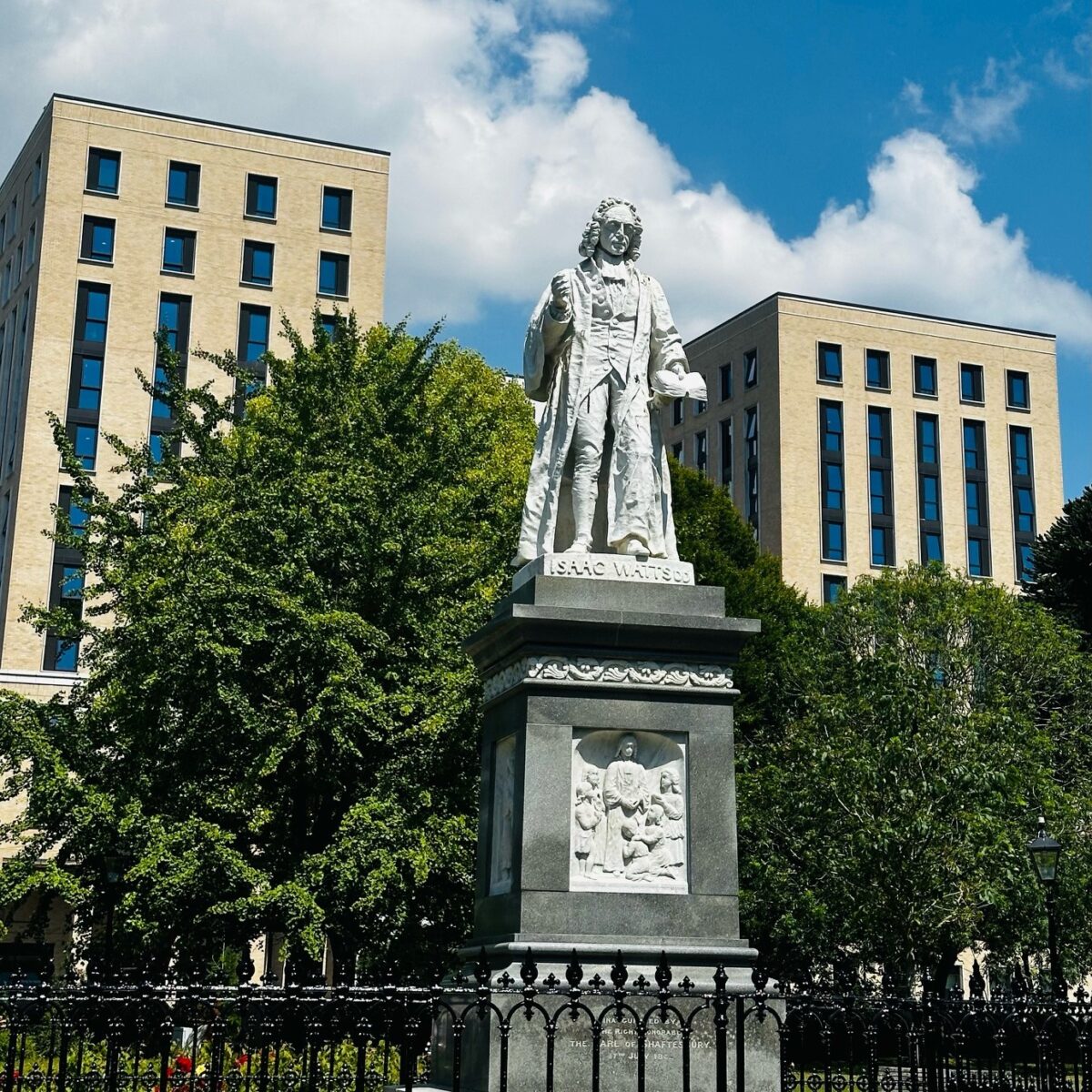If you pass the Civic Centre clock tower at 8am, midday, 4pm or 8pm you will hear the bells play the tune “St. Anne.”
It was composed by the church organist William Croft and is used for Isaac Watts well known hymn, “Our God, Our Help in Ages Past” originally published in 1719.
Isaac Watts was born in Above Bar Street, Southampton on 17th July 1674, opposite today’s Westquay shopping centre.
His mother was Sarah Taunton whose nephew Richard Taunton was the founder of the Southampton school. Richard Taunton and Isaac Watts were cousins. Isaac’s father, also called Isaac, had married Sarah at Millbrook in September 1673. Isaac’s father disagreed with Anglican orthodoxy. He spent several periods of time in prison at the Bargate gaol for his non-conformist religious views. The Act of Uniformity 1662 had established the Book of Common Prayer. This led to 2,000 Church of England resigning and becoming Dissenters.

In 1677, the family moved to French Street, where Isaac’s father ran a boarding school. Isaac was taught by his father until he was six years old and then attended the Free Grammar School in Winkle Street, later becoming King Edward VI Grammar School in Hill Lane. Today, a House at the school is named after Watts.
Watts’ intellectual ability had been recognised by many people in Southampton. Physician John Speed, along with others offered to pay for him to be educated at Oxford or Cambridge Universities. As this required acceptance of the Church of England doctrine, Isaac chose to study at the Non-Conformist Academy at Stoke Newington Green, London.
In 1694 Isaac returned to Southampton. In 1689 Above Bar Congregational Church was opened and his father was a deacon. Destroyed in World War 2, it was where Primark is today.
Isaac told his father he was disappointed with the psalms and canticles that were sung in the church often in Latin. His father challenged him to do better. The outcome was “Behold the Glories of the Lamb” and thus began his life’s work as a hymn writer.
In 1707 he published “Hymns and Spiritual Songs” which contains some of the most popular English language hymns of all time.
Isaac penned about 750 hymns, including “There is a Land of Pure Delight” – which according to tradition came to him while gazing across the River Test towards the New Forest.
Isaac’s “Joy to the World” is still a popular hymn at Christmas time. His best-known hymn is “Our God, Our Help in Ages Past”, which is the school hymn of King Edward VI School.
Isaac was made an honorary Doctor of Divinity by two universities in 1728. Many came to visit him in London, including Oliver Cromwell’s son Richard and John Wesley founder of the Methodists.
The statue to Isaac in Watts Park opposite the Central Library, dates from 1861. Recently renovated it had a rededication ceremony on 25th June 2024. The Isaac Watts Memorial Church on the corner of Luccombe Road and Winchester Road in Shirley will be holding a special event later this year.
Isaac died in November 1748 and was interred at the Dissenting Burial Grounds at Bunhill Road, London.
- In Common is not for profit. We rely on donations from readers to keep the site running. Could you help to support us for as little as 25p a week? Please help us to carry on offering independent grass roots media. Visit: https://www.patreon.com/incommonsoton

